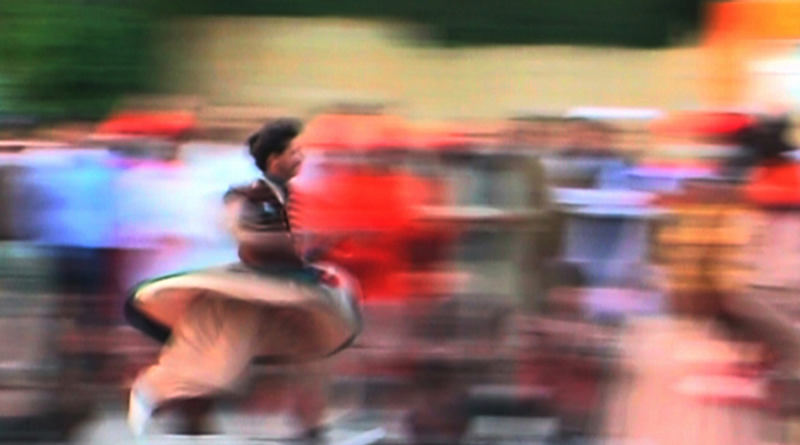September 23 Is Pashtun Culture Day: Question Of Cultural Identity And Pakistani Nationhood – OpEd
The word ‘culture’ comes from the Latin word ‘cultura,’ related to cult or worship. In its broadest sense, the term refers to the result of human interaction. Culture is the lifeblood of a vibrant society, expressed in the many ways we tell our stories, celebrate, remember the past, entertain ourselves, and imagine the future. In children and youth, participation in culture helps develop thinking skills, builds self-esteem, and improves resilience, all of which enhance education outcomes. Cultural heritage broadens opportunities for education and lifelong learning, including a better understanding of history.
According to British anthropologist Edward Taylor, “Culture is that complex whole which includes knowledge, belief, art, morals, law, custom and any other capabilities and habits acquired by man as. a member of society”.
According to Phatak, Bhagat, and Kashlak, “Culture is a concept that has been used in several social science disciplines to explain variations in human thought processes in different parts of the world.”
According to H.T. Mazumdar, “Culture is the total of human achievements, material and non-material, capable of transmission, sociologically, i.e., by tradition and communication, vertically as well as horizontally.”
An understanding of culture requires an understanding not only of language differences, but also differences in knowledge, perceptions, beliefs, attitudes, and behaviors, culture is “simultaneously art, creative expression, religious practice, ritual models and markers of governance structures and territorial heritage, as well as maps of individual and community identity and lineage. Research has shown that revitalization of Indigenous cultures plays a key role in supporting the health, well-being, and healing of individuals and communities.
Our diverse cultural heritage resources in Pakistan tell the story of our shared past, fostering social cohesion. Pashtun Culture Day has been celebrated on September 23 every year since 2014 in Pakistan and several countries throughout the world. The day was designated for promoting the Pashtun culture during a meeting of the Afghan Forum, a cross-border peace initiative, in Peshawar that year.
Since then, gatherings are held in various countries and big cities in Pakistan, particularly Peshawar, Quetta, Islamabad, and Karachi, to mark the day on September 23.
Pashtun culture is based on Pashtunwali, meaning Pashtun Society is guarded by a code of common rules, customs and subconscious social behavior which is known collectively as Pashtunwali. The code is honour based and promotes Courage, Self Respect, Independence, Leadership, Honour (Nang): Hospitality (Melmastiya) Bravery (Turah): Justice and Revenge (Badal) Asylum (Nanwatey); Loyalty (Wafa).
Hujras are a male only guest house, and used to entertain male guests in Pashtun households. It acts as a community club that is as old as the Jirga itself. Every village has a Hujra and is occasionally owned by a wealthy family, but is shared by the entire community.
One of the oldest recorded traditions of Pashtun society, centuries old, is Jirga which are Tribal councils. One of the oldest democratic systems in the world. The Jirgas or tribal councils passes laws, resolves conflicts, deals with the government, murder cases, rewards fines and death sentences, declare war and peace. and banish people such as criminals from the tribe. Unlike Western court system, Jirgas are faster effective, and ritualised with prayers.
The foundation of modern day Afghanistan was laid down by Mirwais Hotak in the year 1709, when he defeated the forces of a Georgian governor, namely Gurgin of Kandahar, and Afghanistan became a kingdom when the Afghans gathered near Kandahar in a tribal Jirga held in the year 1747 about two centuries before the creation of Pakistan and chose Ahmad Shah Abdali from among the challengers, making him their new king of Afghanistan.
Like Pashtun, the Baloch Culture Day is celebrated all over Pakistan on March 2, every year. Sindhi cultural day is celebrated worldwide on the first Sunday of December Punjabi Culture Day is celebrated on March 14 all over the country particularly in Punjab and last not the least Hazara Cultural Day is celebrated on May 19 every year, celebrating various cultural as a beauty of the country in diversity.
But contrary to that, since 1947, Pakistan is in search of cultural identity and trying to develop a cultural identity of its own, while making the culture of various nationalities like Pashtun, Baloch, Punjabi, Saraiki or Sindhis of the land who joined Pakistan as the ‘Other’.
After the partition, Pakistan opted for an “acculturation”, meaning, that is, the assimilation of all ethnic and cultural entities in the nationhood of Pakistan with local cultures feeling a sense of loss. Rather, the position that best suits Pakistan at present is “transculturation”, or identification with a multitude of cultural and sub cultural institutions and social networks.
A simple identification of multi ethnic groups with their culture does not account for any ‘anti-state’ uprising against the nationhood of Pakistan or threatening integrity of state. The brutal and artificial nationalism pursued by the state with an arbitrary task of nationhood takes a simplified view of sub-cultural understanding with a preconceived notion of negative labelling against people with different cultural backgrounds.Inclusion and a sense of belonging is what keep nations flourish.
Similar discriminatory language against the rights and culture of East Pakistan has already cost Pakistan to lose in the war of 1971. Thus, the challenge is to make the people feel that their ethnic identity and cultural diversity is respected, protected, supported and guaranteed in its true sense at both state and government level then various diverse ethnic groups can be amalgamated into one nationhood.
*Sher Khan Bazai, Former Secretary Education, Balochistan, Pakistan


Good Proposal. In fact this is the essence of democracy. Development of a unified culture in a diverse multi-ethnic groups is not only impossible but absurd.